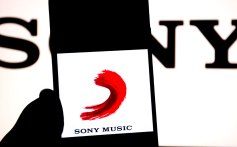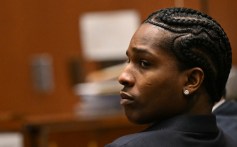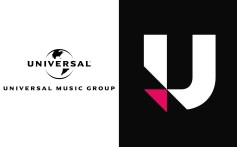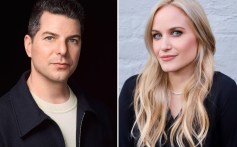Business
Page: 15
Trending on Billboard
Radio companies had mixed results in the third quarter in their efforts to build digital businesses, cut costs and manage a decline in broadcast advertising dollars as consumers shift to newer entertainment platforms.
iHeartMedia’s consolidated revenue of $997 million was down just 1.1%, well within the company’s guidance of a low single-digit decline. Excluding the impact of political advertising in the prior-year period, revenue was up 2.8%. CEO Bob Pittman said during the company’s earnings call on Monday (Nov. 10) that the advertising environment is “pretty good” and iHeartMedia is “not feeling anything” related to the U.S. government shutdown.
Related
An operating loss of $116 million stemmed from a $209 million impairment charge related to the value of iHeartMedia’s FCC licenses. Excluding the impact of the write-down and other extraordinary items, adjusted earnings before interest, taxes, depreciation and amortization (EBITDA), a common measure of profitability from ongoing operations, was flat at $205 million.
The multi-platform division, which includes iHeartMedia’s broadcast and network businesses, had revenue of $591 million, down 4.6% due to lower political advertising and what the company called “uncertain market conditions.” Adjusted EBITDA of $119.2 million marked an 8.3% decrease from the prior-year period, despite lower employee compensation costs.
The digital audio group, which includes podcasts, had revenue of $342 million, up 14%, and adjusted EBITDA of $130.3 million, up 30.3%. Podcast revenue increased by 22% to $140 million.
Based on trends for the top advertisers and advertising agencies, Pittman said he has “confidence” that the multi-platform division will return to revenue growth. “We’re feeling similar momentum to what other ad-supported companies have discussed right now: Spending is holding up, and discussions with advertisers are positive,” he noted on the company’s earnings call. Although iHeartMedia has not felt any impact from the government shutdown, Pittman conceded it “does add a level of uncertainty.”
Related
iHeartMedia said it remains on track to create $150 million in annual cost savings in 2025. In addition, the company took steps in the third quarter to save an additional $50 million in 2026, which COO/CFO Rich Bressler said will come mainly from the multi-platform division.
Looking ahead, iHeartMedia expects fourth quarter revenue to be down in the low single digits. Adjusted EBITDA is expected to be $200 million to $240 million, down from $246 million in the prior-year quarter because of political advertising in the 2024 election year. The multi-platform division is expected to be down in the low single digits. Digital revenue is expected to grow in the high single digits, and podcast revenue specifically is expected to grow in the mid-teens.
Cumulus Media, the country’s third-largest radio broadcaster by revenue, reported that third-quarter revenue fell 11.5% to $180.3 million. CEO Mary Berner cited a “challenging” advertising environment and touted Cumulus’s efforts to cut costs and employ AI to improve efficiency. Broadcast revenue plummeted 17.2% to $115.0 million. Digital revenue fell 2.6% to $39.0 million but would have grown 8.4% without the losses of The Daily Wire and conservative commentator Dan Bongino, who left podcasting to become the deputy director of the FBI. Consolidated adjusted EBITDA fell to $16.7 million from $24.1 million a year earlier.
Related
Townsquare Media faced “numerous headwinds,” CEO Bill Wilson said in a statement, but the company met its previous guidance on revenue and adjusted EBITDA. Revenue dropped 7.4% to $106.8 million and would have dropped 4.5% if political advertising were excluded. Adjusted EBITDA fell 13.5% to $3.4 million.
iHeartMedia shares fell 6.0% to $4.29 on Tuesday (Nov. 11) following the earnings announcement on Monday afternoon. The stock had jumped 55.9% in the week ended Nov. 7 following a report that the company was in talks with Netflix to distribute its podcast content.
Cumulus Media shares soared 31% to $0.135 the day after the company released earnings on Oct. 30. The stock has since lost all of those gains and more, however, and closed at $0.10 on Tuesday (Nov. 11).
Townsquare Media shares fell 11.3% to $5.42 on Monday following the quarterly earnings report. The stock rose 0.6% to $5.45 on Tuesday.
Trending on Billboard
A$AP Relli has abandoned plans to retread his shooting claims against A$AP Rocky at a second trial early next year, telling Billboard through a lawyer that he’s instead “focusing on rebuilding his life.”
Rocky (Rakim Mayers) was acquitted at a criminal trial this past February of shooting Relli (Terrell Ephron), his childhood friend and onetime A$AP Mob collaborator, in 2021. Relli brought an assault lawsuit in 2022 seeking financial damages from the star rapper over the same alleged incident.
Related
The civil case was scheduled to go to trial in January, with Relli facing a lower burden of proof than the one prosecutors failed to meet in their criminal case against Rocky. But an attorney for Relli, Aaron Morris, tells Billboard on Tuesday (Nov. 11) that his client has decided to drop the assault claims.
“At this point, he’s ready to simply move on from the shooting,” Morris said. “The ordeal has been a nightmare for him, and the statements calling him a ‘liar’ and worse effectively eliminated his chances of a career in the industry.”
Morris said his team will file court papers officially dismissing the assault lawsuit later this week. Relli is still pursuing a separate defamation lawsuit against both Rocky and his lawyer, Joe Tacopina, over press interviews in which they called the shooting claims “extortion” and a “get-rich-quick-scheme.” Relli alleges these statements harmed his reputation and career as an artist manager.
“He’s going to litigate the defamation action because of the damages it caused, but as to the shooting, he’s thankful he wasn’t hurt worse and is focusing on rebuilding his life,” says Morris.
Rocky’s reps did not immediately return a request for comment.
Rocky and Relli were involved in a now-infamous altercation near a Hollywood hotel in November 2021. Relli alleges Rocky fired a handgun at him twice during the argument, while the rapper maintains it was a prop gun filled with blanks.
Prosecutors charged Rocky with two felony assault counts in 2022. The Grammy-nominated Harlem rapper rejected a plea offer from prosecutors and went to trial, risking a maximum of 24 years in prison if convicted. Rocky’s bet ultimately paid off, with a Los Angeles jury fully acquitting him of both counts.
Trending on Billboard
A new lawsuit alleges Downtown Music Holdings threw a licensing partner under the bus as a “sacrifice” to lessen regulatory scrutiny of its controversial acquisition by Universal Music Group (UMG).
The $375 million complaint, filed on Monday (Nov. 10) in Manhattan federal court, centers on Downtown’s relationship with YouTube music provider Blast Off Media. According to the lawsuit, Downtown unlawfully ended its distribution contract with Blast Off — and destroyed an entire music catalog in the process — over concerns regarding the European Commission’s review of Downtown’s proposed $775 million merger with UMG’s Virgin Music Group.
Related
“This case exemplifies precisely the type of conduct that opponents of the UMG/Downtown acquisition warned about: a major-label-owned entity destroying an independent operator’s business when it became inconvenient, using pretextual compliance concerns as cover for bad faith economic motivations,” writes Blast Off’s lawyer, JP Kernisan of Quinn Emanuel.
In a statement provided to Billboard on Tuesday (Nov. 11), a Downtown spokesperson said the company properly terminated the Blast Off contract upon realizing that Blast Off’s music catalog was being “widely leveraged to monetize reused or unlicensed content on YouTube.”
“We will defend ourselves vigorously against these baseless and frivolous claims,” the Downtown spokesperson added.
Blast Off’s business model centers on a library of roughly 800 free backing tracks on YouTube. The company allows creators to add these songs to their videos, then runs advertisements on the content and shares music royalties with the creators. Blast Off signed a distribution deal with Downtown in August, tapping the indie music heavyweight to run point on monetizing its sound recordings and navigating YouTube’s copyright claims process.
Related
But Downtown ended the contract after little more than a month in early October amid what it said were concerns about supposed copyright infringement in videos that used Blast Off’s music. However, Blast Off alleges in Monday’s lawsuit that this was an “absurdly disproportionate” reaction to just two user-generated videos that were flagged and quickly dealt with.
“Defendants failed to identify any wrongdoing by Blast Off as opposed to by third-party content creators over whom Blast Off has no control [and] ignored Blast Offs extensive good-faith compliance efforts, including proactive identification and removal of problematic content and implementation of Al-powered monitoring systems,” reads the complaint.
Blast Off alleges that Downtown’s “true motives” in terminating the contract were tied to regulatory approval of the UMG merger; according to the complaint, Downtown needed to maintain favorable “compliance optics” to get the deal through.
“Any issues with its key platform partner YouTube — whether legitimate or not — could negatively impact the acquisition,” writes Blast Off’s counsel. “Downtown preemptively chose to sacrifice Blast Off’s rights rather than work through routine compliance matters out of an abundance of caution to protect its larger financial interests during a sensitive period.”
Related
The “catastrophic” result of all this, claims the lawsuit, is that Downtown has since delisted the entire Blast Off catalog from YouTube. This is allegedly depriving Blast Off of more than $40,000 in revenue per day — and worse, the company says, its music library now carries a “permanent stigma” and will never bounce back to its original worth.
Blast Off estimates its financial damages to be at least $375 million, citing a $250 million valuation for its catalog before the delisting. The company is accusing Downtown of fraudulent inducement and breach of contract, among a slew of other civil claims.
Downtown’s spokesperson denies all of Blast Off’s allegations and maintains that the contract termination was “appropriate and necessary” after they “determined that BlastOff Media’s content was in flagrant violation of YouTube’s terms of service.”
According to Downtown’s reps, the issues with Blast Off went far beyond just two YouTube videos, as the lawsuit claims. They say instead that Downtown determined, via a thorough review, that a significant amount of the videos incorporating Blast Off’s music were unoriginal or unlicensed, and that, in some cases, the music was embedded inaudibly, thus monetizing ineligible video content in violation of YouTube’s content policy.
“Downtown is proud to uphold the highest trust and safety standards on behalf of our clients, our partners and the broader industry,” said the company’s spokesperson. “This includes our role as one of the founders of the Music Fights Fraud Alliance, which was launched to help combat content abuse, including the parasitic exploitation exemplified by Blast Off Media.”

Trending on Billboard
Entertainment management company Milk & Honey Music + Sports has acquired U.K.-based firm Bigfoot Music Management, Milk & Honey tells Billboard.
Under the terms of the deal, Bigfoot is being absorbed by Milk & Honey, meaning the firm will exist entirely under the Milk & Honey banner. As a result, Bigfoot’s current staff will now be part of the Milk & Honey team, and its entire client roster, which includes pioneering electronic producers Adam Beyer and Joris Voorn, will become Milk & Honey management clients. Beyer’s longtime manager, Jeremy Ford, will be senior vp of electronic for Milk & Honey globally and be based in the company’s London offices.
Related
The move further expands the dance/electronic footprint at Milk & Honey, as the company hired longtime music manager Andrew Goldstone as head of electronic music this past March. Goldstone brought manager Taren Smith into the company, along with clients including the dance/electronic artists Kream and Sullivan King.
“As diverse as the Milk & Honey brand is in mainstream music genres, we are equally invested in underground music,” Milk & Honey founder and CEO Lucas Keller tells Billboard. “The company looks after unique talent across all facets of the music business, and this deal with Bigfoot to join Milk & Honey represents a further investment into techno and electronic music which is a top priority for the company. We are very excited to have Jeremy and his team in our UK office and joining the global M&H outfit.”
Over the years, Ford and his team have helped guide and grow international dance brands, including Beyer’s Drumcode label and Voorne’s Netherlands-based house and techno label, Spectrum. Other artists on the Bigfoot roster who will now be represented by Milk & Honey include Juliet Fox, Sarah Story, Sam Wolfe, Simon Patterson and Will Atkinson.
“Over the past three decades, Jeremy Ford and Bigfoot Management have built one of the most respected operations in electronic music,” adds Milk & Honey head of artist management & sports Dave Frank. “From Adam Beyer and Joris Voorn to the iconic Drumcode brand that encompasses record label, events, fashion and globally syndicated radio, their team has played a big role in shaping modern techno and house. We’re thrilled to welcome the Bigfoot team into the Milk & Honey family as we combine our networks, relationships and resources in representing and growing world-class talent who are and will be the global stars that drive our scene into the future.”
“Since its inception, Bigfoot has always championed talented artists who possess authenticity and ambition as well as brands, labels and events that also share a purposeful, global vision,” says Ford. “We’ve always strived to embrace, nurture and develop visionary leaders within the scene. Joining Milk & Honey represents an incredible opportunity for us to expand our reach and strengthen our ability to serve artists in a wider capacity. We share the same values, drive, work ethic and belief in building long-term careers so with this partnership and the fusion of two such talented teams we look forward to an exciting future that will no doubt shine a brighter spotlight on those we represent.”
Trending on Billboard
Under a new partnership between Universal Music Group (UMG) and Udio, Taylor Swift will soon be able to flip the AI-music switch and allow users to create all the songs they want in the superstar’s style — as would every other artist signed to the world’s biggest label.
“It’s their choice,” Udio’s CEO, Andrew Sanchez, told Billboard shortly after the deal was announced. “But yeah, in the new service, you would be able to do that, and you’d be able to make extraordinary music.”
Related
Unsurprisingly, Swift was unavailable for comment. But would artists be open to tossing their songs into a generative AI machine to see what the robots can do with them? Maybe, some top managers say. Sia, for example, “views Sia as an avatar,” says Jonathan Daniel, who manages the “Chandelier” hitmaker as well as Miley Cyrus and UMG artist Lorde. “It’s like anyone can be a pop star. That’s why she wears the wig.”
On Oct. 29, UMG was the first major label to settle a lawsuit with Udio, one of the top AI-music services, agreeing to develop a new creation and streaming platform that’s set to launch next year. Under the deal, artists will be able to opt in to the platform in “granular” ways, according to Sanchez, allowing them to choose — by essentially selecting from a menu of options — exactly how fans are allowed to use their music and voices to create songs.
Although Daniel says many of his other clients, including Green Day and Nirvana, are unlikely to submit their catalogs to AI, he adds, “Not all artists, but certainly a lot of artists, are less worried about AI music than people that sound worried about it. Artists are in the magic business, right?”
Related
AI has spent 2025 creeping into the music business, as artists like Xania Monet and Unbound Music have hit the Billboard charts via streaming and track sales. As Matt Pollack — a senior manager at Monotone Inc., which represents Jack White, Vampire Weekend, LCD Soundsystem and others — puts it, artists, managers and labels must suddenly contend with a future that “wasn’t happening eight weeks ago, and now it is.”
The idea of opting into an AI-music service, even if it’s legal under the terms of the UMG-Udio deal, remains daunting for many artists. (The other two major labels, Sony Music Entertainment and Warner Music Group, have pending litigation against Udio and, along with UMG, another AI-music firm, Suno; their complaint alleges infringement on “an almost unimaginable scale.”) “Once you start to put words in an artist’s mouth, you’re in a real danger zone,” says Jeff Jampol, CEO of Jam Inc., which manages the estates of The Doors, Janis Joplin, Charlie Parker and others. “The legacy is the art and their voice. Do I want to take that and co-opt it and twist it? No, I don’t.”
Corey Smyth, owner and CEO of Blacksmith Holdings, a management company for Vince Staples, De La Soul, the Max Roach estate and others, worries about the idea of major labels managing the AI future of the business. In his view, label executives profited greatly from the streaming revolution, while many artists received pennies for their work. “They’re going to screw you on it,” he says. “The industry’s not built like that. They’re not building it for you.”
Related
As for whether his Universal-signed artists might agree to the AI treatment, Smyth says, “It depends on where you are, what your business model is. Are you a legacy artist, [or] are you just a flash in the pan? Most artists are driven by the idea of creating. Anyone who wants to just have the thing done isn’t trying to create art — they’re creating commerce.” Daniel, manager of Sia and Green Day, adds that AI is a “great tool” that “might replace pretty good music,” but “great artists have a point of view. Is AI going to write American Idiot? I don’t think so.”
At Monotone, the management company, AI music is a central topic at weekly staff meetings, Pollack says, including the implications of their clients “opting in” to AI systems, as Sanchez suggested after the Oct. 29 settlement with UMG. One of Montone’s artists is working on short-form video content on a low budget and uses AI to save time and money. But he also finds the concept of managing an AI artist that is “not a breathing entity” a bit too surreal, whether major labels allow the possibility or not. Says Pollack: “That’s insane.”
“The reality of it is, I don’t really know,” he adds. “Nobody ever really planned for this. This was a science-fiction notion up to a year and a half or two years ago.”
Trending on Billboard Sony Music reported record-high quarterly earnings on Tuesday and its Tokyo-based parent company raised its overall annual earnings forecast, as rising streaming income and the success of the anime series Demon Slayer: Kimetsu no Yaiba Infinity Castle made the music segment a standout success for the Japanese conglomerate. Overall sales for Sony […]
Trending on Billboard
Atlantic Music Group (AMG) has tapped A&R veteran Jeremy Vuernick as its next executive vice president.In the new role, Vuernick will report jointly to AMG CEO Elliot Grainge and Atlantic U.K. co-presidents Ed Howard and Briony Turner, overseeing the AMG roster to sign and develop new artists with global potential. He will be based in London.
The announcement follows the recent promotion of Howard and Turner to AMG’s global leadership team, a move the label has said was “designed to create tighter collaboration across the two territories, and to generate greater global impact for Atlantic’s world-class roster”.
Related
In the past year, Atlantic has enjoyed transatlantic success for U.S. breakthrough artists such as Alex Warren, Teddy Swims, and Benson Boone, as well as British firebrand Charli XCX.
Vuernick brings with him two decades of experience in the music industry, largely in the A&R sector. He joined Capitol’s Astralwerks imprint in 2013, serving in senior capacities at the label before being promoted to executive president of A&R at Capitol Music Group (CMG) in 2019, where he oversaw the company’s portfolio of labels.
Prior to his tenure with Astralwerks, Vuernick held senior roles at independent label Ultra Music, overseeing A&R, marketing, and sales. More recently, in 2024, Vuernick founded the Los Angeles-based independent company Queens Road Music in partnership with Atlantic.
The U.K. has long been one of the most influential markets in the world and a cultural leader in developing and exporting exceptional global talent,” said Vuernick in a press release.
“With Elliot cementing the natural relationship between the U.K. and US, and Ed and Briony leading the charge as two of the best creative leaders in the business, our combined force will take Atlantic and its artists to a new level of recognition and success.”
Grainge added: “I have worked with Jeremy for a number of years and I’m excited to officially welcome him into the AMG family. He comes to us with outstanding experience, instincts, and passion for artists, so he’ll be an ace addition to our newly aligned teams.
“Under the expert leadership of Ed and Briony, Atlantic UK has been a formidable source of chart-topping, game-changing artistry. With Jeremy now based in London, we are continuing to build our bridge across the ocean, ramping up our collective A&R and cultural firepower.”
Trending on Billboard
Cris Lacy has been named chair and president of the rebranded Warner Records Nashville, continuing her role as one of the highest ranking women label executives in Nashville.
Related
Formerly Warner Music Nashville, the Nashville label has been renamed after coming under Warner Records Group in September 2024. Lacy will continue to report to Warner Records Group Co-chairman/CEO Aaron Bay-Schuck and Co-chairman/COO Tom Corson, as she has since the realignment over a year ago.
Gregg Nadel, who had served as Warner Music Nashville co-chair and co-president with Lacy for the last 14 months, will take on a new leadership role within Warner Music Group, which will be announced shortly.
Lacy started at Warner 20 years ago as an A&R executive after starting her career in publishing. She and Ben Kline became co-presidents at then-Warner Music Nashville in 2023, after John Esposito moved to a chairman emeritus role. Then last September, as Warner Music Nashville began reporting to Bay-Schuck and Corson, Kline left and Nadel came in to serve with Lacy.
Warner Records Nashville
Courtesy
“Nashville has always been synonymous with exceptional storytelling, expertly crafted lyrics and incomparable musicianship. Its growing influence is permeating other genres and is increasingly found front and center on the world’s stage,” Lacy said in a statement. “This move formalizes the cross-pollination that we’ve been developing over the years with our Los Angeles colleagues across areas such as A&R, marketing strategy, data/research, business affairs and radio promotion. Warner Records is a powerful brand, and we know that we’re stronger when we work together to propel our artists and their life’s work to new heights.”
Related
Bay-Schuck and Corson jointly stated, “This rebrand marks an exciting new era for our flagship Nashville label — one that builds on everything that already makes it so special, guided by Cris’ extraordinary leadership. Her passion, vision, and unwavering respect for artistry define the label’s spirit and have earned the trust of the Nashville community. Together, we’re collaborating closer, and expanding the reach and opportunities for artists in a genre where the future feels limitless. This is an exciting next step as we continue to forge a global ecosystem that amplifies our competitive edge and impact for our artists.”
In addition to Warner Records U.S. and Warner Records Nashville, Warner Records Group includes Warner Records UK. Warner Records Nashville is home to such artists as Kenny Chesney, Cody Johnson, Bailey Zimmerman, Ashley McBryde, Chase Matthew, Cole Swindell, Gavin Adcock and many others. The combined Warner Records U.S. and Warner Records Nashville rosters also include Zach Bryan and Dasha, among others.
For a brief moment earlier this year, all three major Nashville labels were helmed or co-helmed by women. Cindy Mabe‘s departure as CEO/chair of UMG Nashville (now MCA) in February leaves Warner Records Nashville and Sony Music Nashville as headed by women. Taylor Lindsey became chair/CEO at Sony following Randy Goodman’s departure in January.
Trending on Billboard As the holiday season gets underway, an ultra-rare Mariah Carey demo tape is coming up for auction. This centerpiece of an historic archival release sourced from the collection of legendary producer/DJ Arthur Baker, the demo tape is being auctioned by Wax Poetics. The auction preview opens today (Nov. 11) with bidding going […]
Trending on Billboard
All-American Rejects are set to kick off SXSW 2026 at the Music Festival Opening Party hosted at Stubb’s Amphitheater on March 12 in Austin, Texas. The festival and conference has also announced the first slate of artists set to play the iconic event’s 40th anniversary that will take place March 12-18 throughout the city.
The initial list of 100 showcasing artists will include masked lo-fi art-pop musician Milo Korbenski from Brighton, England; experimental electropop and live coding pioneer DJ_Dave out of LA; Mexico City-based and regionally influenced post-punk project La Texana; Brooklyn-based alt-folk songwriter Hudson Freeman; Austin-based Bayonne, the introspective and ethereal electro-pop project of artist Roger Sellers; Indonesian indie trio Grrrl Gang; Irish post-punks Chalk; LA punk-pop buzz band The Sophs; West Coast hip-hop and Bollywood influenced rapper, producer, and songwriter KOAD; Minneapolis-based singer-songwriter runo plum; and Grammy-nominated rapper and Tully founder Joyner Lucas.
“SXSW has been the premiere destination for music discovery for 40 years, helping push pioneering acts like Kendrick Lamar, The White Stripes, Wet Leg, PinkPantheress, Tyler, The Creator, and Billie Eilish, to the next level,” SXSW vp of music Brian Hobbs said in a release. “By bringing the global music industry to Austin, from labels and A&R to publicists to influential journalists and critics, SXSW is a unique opportunity for showcasing artists to build their careers, enter new markets, and learn from fellow artists and industry voices. With an extra night of showcases this year, 2026 is shaping up to be better than ever for artists, industry and audiences.”
For a full list of Showcasing Artists, head here.
SXSW will celebrate its 40th year in 2026 as a condensed festival and conference due to the closure of the Austin Convention Center that is undergoing extensive renovations. The event will be two days shorter than the 2025 edition, with its interactive, film/TV and music programs running concurrently.
The festival has also announced its initial list of Music Showcase Presenters that include returning brands Billboard, NPR Music Stations, Rolling Stone, British Music Embassy, Los Angeles Times’ De Los, BMG, BBC Introducing, and The Line of Best Fit, as well as first time presenters including Willie Nelson’s Luck Reunion, R&B Block Party and Dream Con. The full list of the first 50 Music Showcase Presenters can be found here.
As Billboard reported last month, for the first time, SXSW will feature a fully integrated seven-day schedule across its trio of core programs, with downtown Austin transforming into a creative village anchored by three “clubhouses” — Innovation at Brazos Hall, Film & TV at 800 Congress, and Music at The Downright — designed to simplify navigation and foster collaboration throughout the all-in-one event.
Billboard parent company Penske Media acquired a majority stake in SXSW in 2023 and helped expand its reach to three continents, now hosting flagship events in Austin, Sydney and London.

 State Champ Radio
State Champ Radio 









